QuestionQUESTION: Hello Rev. and Dr. Abbott,
I have been told I have a pair of proven parrotlets with 2 prior clutches. They are new to me. The pair were in the middle of nesting with 5 eggs in the nest box, and everything going well. One morning we heard a LOUD squabble in the bird room, but as they do squabble at times, I didn't check them till that afternoon. I found that one egg had been almost completely eaten. The male seems to be, "NOT allowed" in the box as much as before, but will stand guard on the nest box perch, and occasional go in peacefully. The hen is now more protective of her eggs and will not get off the nest as often, even if I open the nest box lid to check that everything is ok. I did watch her via camera and noticed her out of the box eating, so I quickly checked in the box, and found four eggs still intact. The half eaten egg is now completely gone. It's only been one day since the incident. Can you please tell me what your course of action would be at this point? Also, for what reasons would parrotlets eat their eggs?
Thank you so much for your time.
Sincerely,
CIndy
ANSWER: -- I'm sorry for the delay, but I've been swamped lately with rescue needs and adoptions.
There are many possibilities for what you describe with the pair you have, but quite often cannibalizing the nest is done either under extreme duress and/or nutritional needs.
If you're feeding a seed based diet chances are one or both birds have low to no stores of calcium (seeds are very bad for ALL captive birds and worse for breeder pairs) and possibly low vitamin A as well.
Look into how to fix this here www.4animalcare.org/birds
--------
The squabbling is something seen in too small cages. Again, I don't know your situation, I only know the 'most common' reasons
Verify the appropriate cage size by imagining BOTH of your birds sharing a perch across the center of the cage at the same time. Now imagine that they BOTH have their wings fully outstretched as big as they get. Can they completely turn around in a circle at the same time with full wings and not come close to touching each other OR any side of the cage?
And can they do this upside down as well?
If so, then great! The cage is the right size. If not - well, that's the size cage you need
--------
Finally, birds should not breed more than once a year; twice only if after a vet check assures they are in good health.
After two clutches in a row they should be given a season off.
Obviously some breeders feed badly (seeds) and over breed their birds just like puppy and kitten mills do with their animals, but it's all kinds of wrong and makes for very short life spans of birds that deserve better.
Let me know how you're doing ok?
---------- FOLLOW-UP ----------
QUESTION: Dear Rev. and Dr. Abbott,
Thank you for your quick response. I appreciate it. I'm working very hard to do this right, as it is my first experience, but I have been studying parrotlet breeding, hatching, and care for almost 2 years (on and off) now, so I think I'm ready. To bring you up to date and refresh you:
This pair of parrotlets are new to me. They had 5 eggs in the nest, one of which was EATEN. This happened 3 days ago. I'm trying to figure out WHY. I checked today, there are still 4 eggs intact and seem to be well cared for. I watch her throughout the day via camera, as I don't want to bother them. They have complete privacy, but they can hear some average house noise.
The possible issues you addressed:
SEED DIET. I do feed them Drs. Foster and Smith Cockatiel premium blend with omega3 on a daily basis. In addition, which unfortunately they pick through, sliced fresh vegs. kale, carrot, or sweet potato, celery, apple, orange or strawberry. Once in awhile I make a layered mix which includes, in addition to what I mentions above, endive, broccoli, pasta, black bean, and a mix frozen veg of corn, green bean, and pea. I will also, at times, give them sprouted seed. I also include in their seed mix 1 TBSP of Quiko egg food supplement, 1 TSP of petamine.
CALCIUM: I sprinkle their seed with Zoo med Avian Plus which first ingredient is Dicalcium Phosphate, which
I'm not familiar with, but the second ingredient is Calcium carbonate. I sprinkle this on their seed EVERY OTHER DAY, which is what is recommended on the bottle. I only bought this because she didn't seem to be eating much of the cuttlebone, which I knew that she should! So, I moved the cuttlebone and mineral block to a closer location to the food container, and she then started using it more, but not as much as I expected.
QUESTION: Should I increase the Avian Plus to every day?? Also, you should know in the beginning I sprinkled the Avian Plus on their fresh vegetables, but the majority of what they eat is the seed mix, even though they have these wonderful fresh vegs. everyday they mostly pick at it, eating select things which honestly, I'm not sure what they prefer. Kind of frustrating, but I didn't raise them, so I'm somewhat stuck.
VITAMIN A LOW: I, of course, provide the kale, and carrot or sweet potato daily. But also, the Avian mineral supplement, quiko egg, mineral block (always avail, but not eaten much at all)
CAGE TOO SMALL: I have Visions cage, which I measured, and it is, according to the information I have read, the proper breeding cage size. They could almost stand side by side in the middle of their cage, at the top, and bottom, with wing stretched. The nesting box is a wooden budgie box, which is what I read many times, as the proper size to use for parrotlets.
BREEDING AMOUNT: This is the first time I have bred them. They are almost 3 years old and they were bred twice in their lifetime. I could tell when I purchased them that they had NOT been through the breeding process. They were beautiful. He still is. She looks a little plucked, they have lined their nest with so many of her feathers, even from her head, (he clearly had to do that to her).
I checked out your website I can see that the preferred diet is pellets, which of course most of our birds don't like, (working on weaning them to pellets, which is very difficult). I've also read that it is a controversial subject. Which leads me to a question:
QUESTION: What is your opinion about parrotlet mutations eating pellets? I have read that it can create kidney
failure? Makes me kind of afraid to feed my new birds.
Ok, so I think that this was all of your possible issues and my questions. They seem to really care for the remaining eggs. Although she makes him stay out most of the time now, he usually stands guard on the box perch. He must be feeding her, but I don't see it. She will only leave to defecate (usually only one or two large piles per day) and eat, or drink, a little. I timed her earlier, and she was out for 3-4 mins, then immediately back in.
Thank you so much for your time and effort.
Oh, and I saw your parrots on the youtube clip! Wow! Beautiful colors. I have to admit their size would scare me! I'm easily intimidated! Do they ever bite you? We only have the green parrotlets, budgies, and my new pair of parrotlets are blue, and American white.
Thank you again for your time
Cindy Moughamian
Answer-- Hello again Cindy and thank you sincerely for your contribution to the rescue/rehab efforts.
After going over what you're doing and your reassurance that the cage is appropriate, let's focus on the nutritional aspect which is more important for a breeding pair than any others.
First, let me address the pellet vs seed info you've run across. Many years ago when pellets were first introduced cockatiels seemed to show adverse effects with liver and kidney disease or disorders. "Seemed" . There were a lot of other factors involved, but nevertheless, avian researchers and avian specific veterinarians kept working on perfecting the pellet.
That's been done. In fact, it's still going on (research, improvements). There is NO danger from today's pelleted diets, especially those that are all natural.
That said, the internet is full of less than sophisticated individuals who are easily swayed by an official looking web page and any person who communicates with authority. Unfortunately, there's no verification of credentials online and someone posing as a doctor, scientist or authority could be a well versed 12 year old acting out a fantasy of what they want to be when they grow up.
Also, sometimes a layperson will take the smallest grain of truth and grow the biggest lie.
One example that pops up regularly is that feeding a bird spinach will kill them. That's the lie. The grain of truth is that if any parrot species eats spinach in large amounts, like every day, rather than contribute to the calcium stores in their body it begins to leech calcium OUT of their bodies. In regular amounts - spinach is a good and safe food for birds.
----
Look, I've spent years in avian studies in order to attain my certification; I am in ongoing continuing education through Tuft's university, the U of CA at Davis and working with avian medical researchers who are published in the med journals. I love my birds and I devote my life to the rescue and rehab of any bird that comes my way. I will do this until the very day I die. I would not recommend something that could possibly harm any bird.
Seed blends though? That's like putting a toddler in a bedroom and feeding them nothing but ice cream and candy for years. Things will look fine right up until the heart attack, the liver disease, the cancer, diabetes, thyroid disease or sudden death. Then you'll realize there are no do overs. There's only 'do it right' right from the beginning.
Our in home birds don't have the opportunity to burn off the high calories of seeds like they do in the wild (thus the toddler in a bedroom). Seeds are exceptionally high in fat (ie: ice cream) and quick energy (candy bars) but nutritionally speaking? Not much. All of the additives and vitamins and omega's are sprayed onto the seed pods. Parrots don't eat the pods, they leave them behind, so in fact they aren't getting any of the things the manufacturer claims.
There no truth in advertising laws with our animals as there are with humans. Pets are considered replaceable goods. If a pet food or product kills a pet, after costly litigation an owner might recover enough money to 'buy another one'. Pretty cold isn't it?
-------
Getting them off seeds isn't really that difficult once you put your mind to it. I've been able to do it with seed junkies of more than 30 years, in less than a week.
Get them at least tasting the good stuff by starting with human baby food. Make sure it's all natural of course, nothing but the vegetable or fruit and 'water for processing' on the ingredient label.
Start with sweet potatoes. That's a remarkable food for a bird, nearly perfect! Then stick to dark colored veggies like squash, carrots and so on. Birds eat less fruit than vegetables so when choosing fruit also aim for ones with a lot of nutritional value: Peaches, mangoes, oranges, papaya, pears, banana, grapes
----
Another big trick is to eat along with your bird. These are flock animals and it's hard wired in them to eat when the rest of the flock is eating; to sleep when the rest sleep; to make noise when the rest make noise
Purposely show your bird you're eating a nice, dark grape and then give them a half of one to eat with you. You get the idea
----
You can sprout the seeds you've got and let them enjoy them this way, but lets get them onto a pellet.
One I find most birds go for without hesitation is Brown's Zoo Vital. Look for it online anywhere you find a good price (I don't promote or sell anything).
Another easily accepted one is Zupreem (or Exact) - gosh, drawing a blank right now, but it's a "rice" pellet
--------------
I have no doubt you'll figure it all out for your little ones.
Finally, let me tell you about the severe macaw on site, one of my permanent residents: She was stubborn as the day is long. Every day I gave her carrots. Cooked, sliced, diced, shredded; steamed, raw, whole, julienned, even mashed, smashed and pureed.
Every day. For 8 years. Yep, 8 years! Then, one day when I went to change her food dish I found a mound of shredded carrot. Out of the blue she decided to try a raw, baby carrot and she LIKED it! Now, I give her a baby carrot every day. Probably 5 out of 7 days she actually eats them - and that's all that matters.
Check the bottom of the page on the site www.4animalcare.org/birds
There are recipes for meals you can make for your birds and enjoy eating yourself!

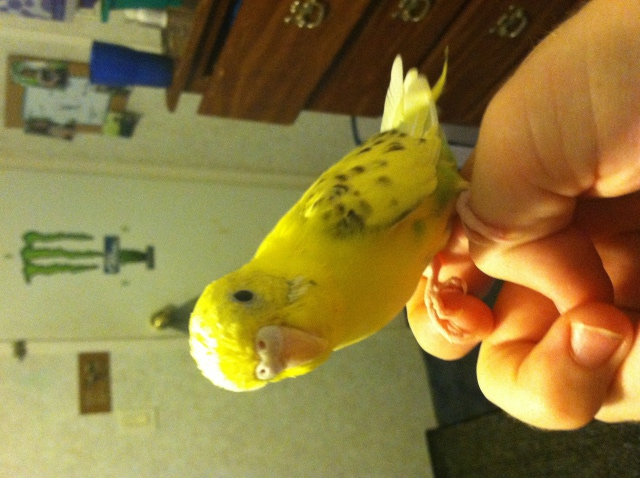 Parakeet gender
Question
Parakeet
Hi, I looked for an expert und
Parakeet gender
Question
Parakeet
Hi, I looked for an expert und
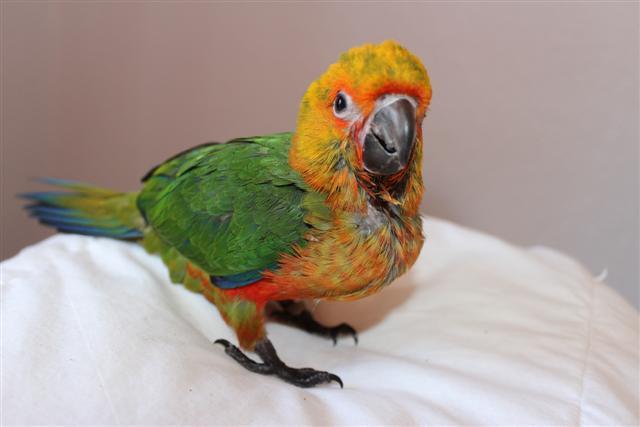 Jenday Conure Weaning?
Question
Castor the Conure
Hi
I have a 9 week o
Jenday Conure Weaning?
Question
Castor the Conure
Hi
I have a 9 week o
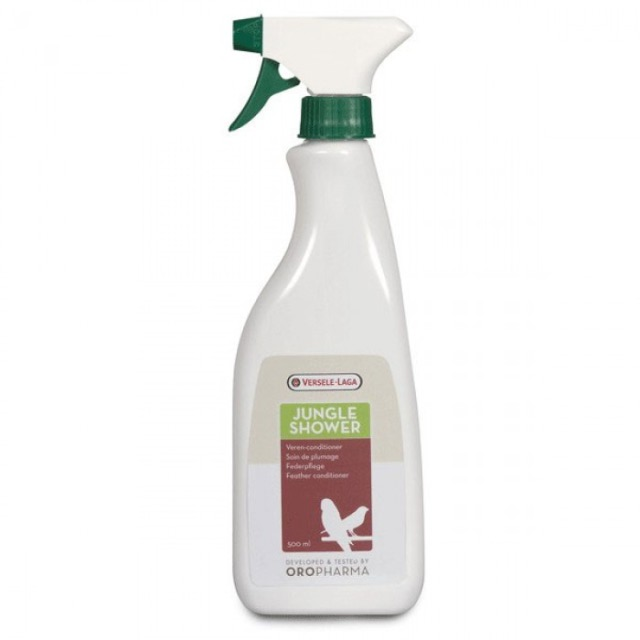 Indian Ringneck Health Issue
QuestionI have an Indian Ringneck who had been neglecte
Indian Ringneck Health Issue
QuestionI have an Indian Ringneck who had been neglecte
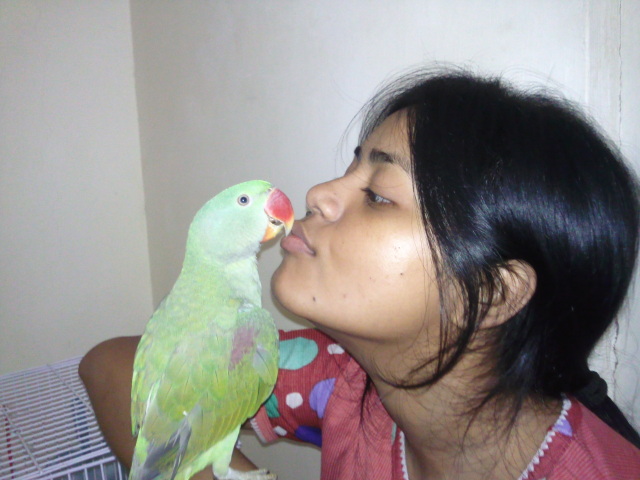 can i give my parrot chole(chana) called in hindi
Question
my little chaddi alexa
dear sir,
can give chan
can i give my parrot chole(chana) called in hindi
Question
my little chaddi alexa
dear sir,
can give chan
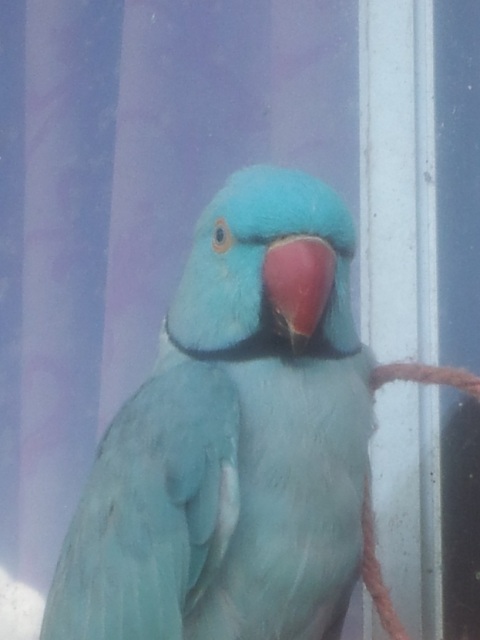 RE: Indian Ringneck probems
Question
Indy our Ringneck
Thank you for your he
RE: Indian Ringneck probems
Question
Indy our Ringneck
Thank you for your he